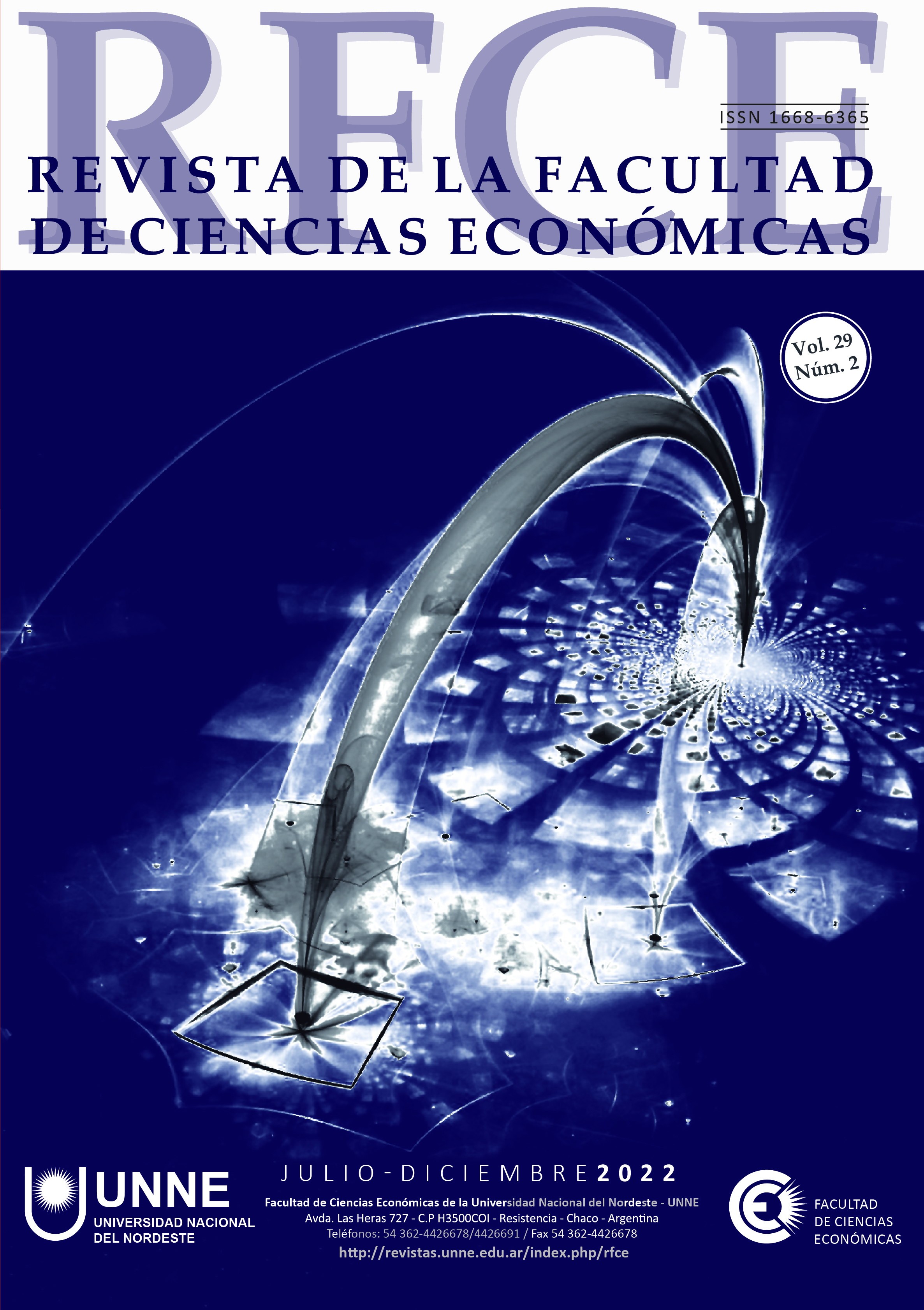Educación a distancia y aprendizaje adquirido en contexto de emergencia sanitaria, un modelo causal
DOI:
https://doi.org/10.30972/rfce.2926290Palavras-chave:
Modelización estadística, Estudiantes universitarios, COVID-19, Educación a distanciaResumo
En la mayoría de las sociedades occidentales, la pandemia de COVID-19 ha generado en el sistema educativo diversos inconvenientes, que afectaron en cada comunidad de diferente manera. En el marco de esta realidad, el objetivo del presente trabajo consiste en proponer un modelo estadístico que permita explicar las relaciones de causalidad que presentan diferentes aspectos de la educación a distancia respecto de la percepción que tienen los estudiantes sobre el nivel de aprendizaje adquirido. Los participantes en este estudio fueron 101 alumnos de ambos sexos (57.43% mujeres, M = 29.02, DE = 6.82), que en el curso lectivo 2021 se encontraban matriculados en asignaturas de 3°, 4° y 5° año de carreras que se imparten en un centro universitario de gestión pública de Argentina. La investigación responde a un diseño de naturaleza no experimental, de estilo explicativo mediante encuesta, de línea cuantitativa y corte transversal, de tipo correlacional e impronta prospectiva. A efectos de recoger la evidencia observacional, se utilizó un cuestionario ad hoc –cuya validez y fiabilidad fueron analizadas– conformado por dieciséis ítems agrupados en tres dimensiones (aprendizaje, enseñanza y contexto). Los análisis inferenciales implementados, permitieron determinar el modelo causal que mejor se ajusta a la realidad objeto de estudio y que sería de utilidad para explicar los datos y/o predecir observaciones futuras. La relación de dependencia múltiple contrastada empíricamente se utilizó como insumo para efectuar algunas consideraciones que posibiliten mejoras psicopedagógicas vinculadas con el proceso eLearning, en el ámbito académico e institucional de selección de la muestra.Downloads
Publicado
Como Citar
Edição
Seção
Licença
La Revista de la Facultad de Ciencias Económicas solicita sin excepción a los autores una declaración de originalidad de sus trabajos, esperando de este modo su adhesión a normas básicas de ética del trabajo intelectual.
La Revista de la Facultad de Ciencias Económicas de la Universidad Nacional del Nordeste, Argentina, declara e informa que no se aplica a los autores ningún cargo ni costo, por la publicación de los artículos. La distribución y acceso, son de carácter libre y gratuito.
Este obra está bajo una licencia una licencia de Creative Commons Reconocimiento-NoComercial-SinObraDerivada 4.0 Internacional.





